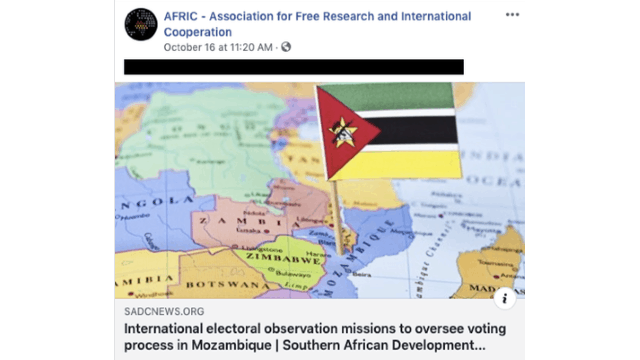
Facebook removed three more networks of accounts for coordinated inauthentic behavior, all of which originated in Russia.
Head of cybersecurity policy Nathaniel Gleicher said in a Newsroom post that the three networks were connected to entities associated with Russian financier Yevgeniy Prigozhin, who was previously indicted by the U.S. Department of Justice.
The first of the three groups consisted of 35 accounts, 53 pages, seven groups and five Instagram accounts, with its activity focused on Madagascar, the Central African Republic, Mozambique, the Democratic Republic of the Congo, Côte d’Ivoire and Cameroon.
They used a combination of fake accounts and authentic accounts of local nationals in Madagascar and Mozambique to manage pages and groups and post content, typically regarding global and local political news on topics including Russian policies in Africa, elections in Madagascar and Mozambique, election monitoring by a local non-governmental organization and criticism of French and U.S. policies.
According to Gleicher, some 475,000 accounts followed one or more of the removed pages, about 450 people followed at least one of the groups and roughly 650 users followed one or more of the Instagram accounts.
This network spent about $77,000 on Facebook ads, paid for in U.S. dollars, with the first ad running in April 2018 and the most recent ad running this month.
He also shared sample content from some of the removed pages:
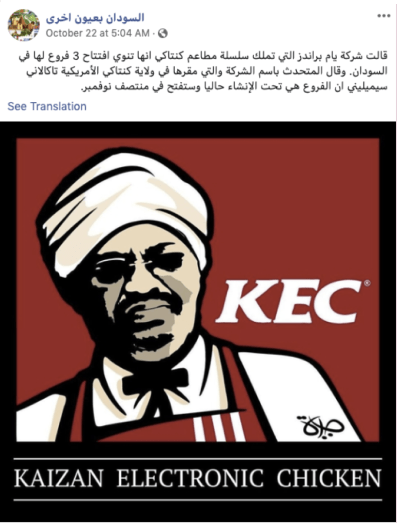
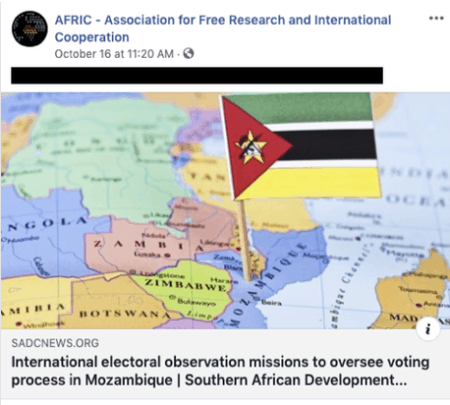
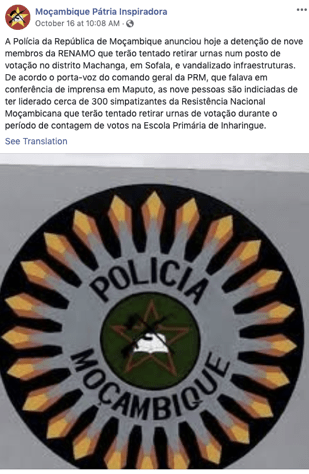
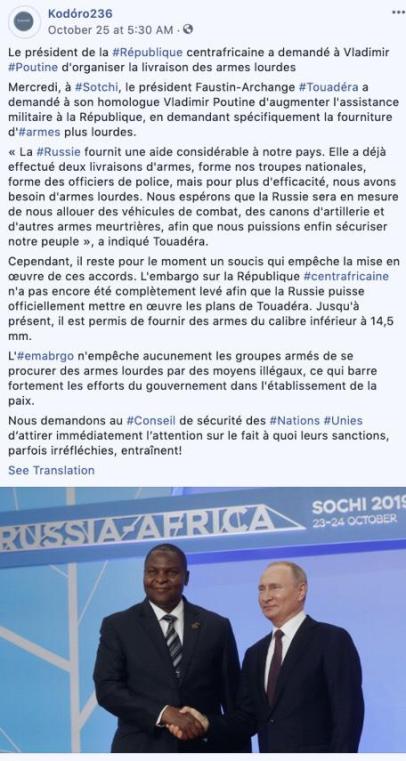
The second network was made up of 17 accounts, 18 pages, three groups and six Instagram accounts, focused primarily on Sudan and using authentic accounts of Sudanese nationals, as well as fake and compromised accounts, to comments, post and manage pages posing as news organizations, as well as to direct traffic to off-platform sites.
Stories from Sudanese state news agency SUNA were often shared, as well as content from Russian state-controlled media Sputnik and RT, posted primarily in Arabic but sometimes in English. Topics included local news and events in Sudan and other countries in Sub-Saharan Africa, such a Sudanese-Russian relations, U.S.-Russian relations, Russian foreign policy and Muslims in Russia.
About 457,000 accounts followed at least one of the pages, while some 1,300 joined at least one of the groups and around 2,900 followed at least one of the Instagram accounts.
About $160 was spent on Facebook ads, paid for in Russian rubles, with the first running in April 2018 and the most recent one this past September.
Gleicher shared sample content from some of the removed pages:

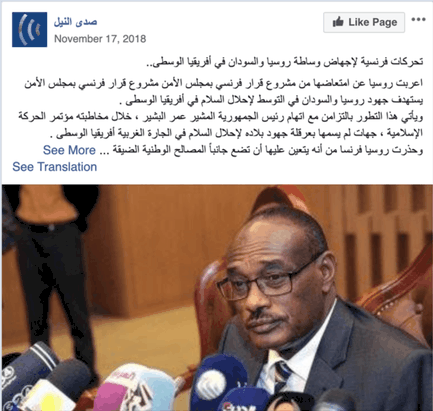
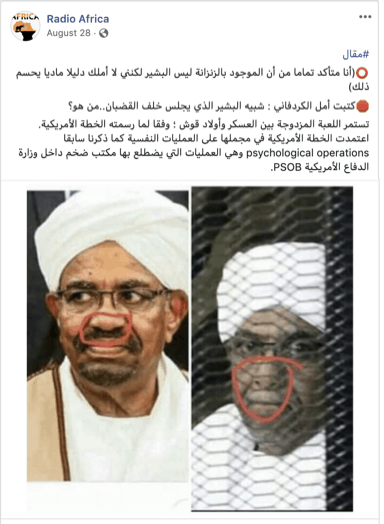
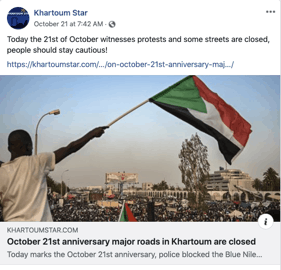
And the final group of 14 accounts, 12 pages, one group and one Instagram account focused on Libya, using a combination of authentic accounts of Egyptian nationals and fake and compromised accounts to manage pages and drive people to an off-platform domain.
Stories from Sputnik and RT were frequently shared, and posts in Arabic covered local news and geopolitical issues including Libyan politics, crimes, natural disasters, public health, Turkey’s alleged sponsoring of terrorism in Libya, illegal migration, militia violence, the detention of Russian citizens in Libya for alleged interference in elections and a meeting between Khalifa Haftar, head of the Libyan National Army, and Russian President Vladimir Putin.
Gleicher added that some of the pages posted content on multiple sides of political debate in Libya, including criticism of the Government of National Accord, U.S. foreign policy, and Haftar, as well as support of Muammar Gaddafi and his son, Saif al-Islam Gaddafi, Russian foreign policy and Khalifa Haftar.
Approximately 212,000 accounts followed at least one of the pages, while just one account joined the group and around 29,300 people followed the Instagram account.
https://www.adweek.com/digital/facebook-removes-3-more-russian-networks-for-coordinated-inauthentic-behavior/

